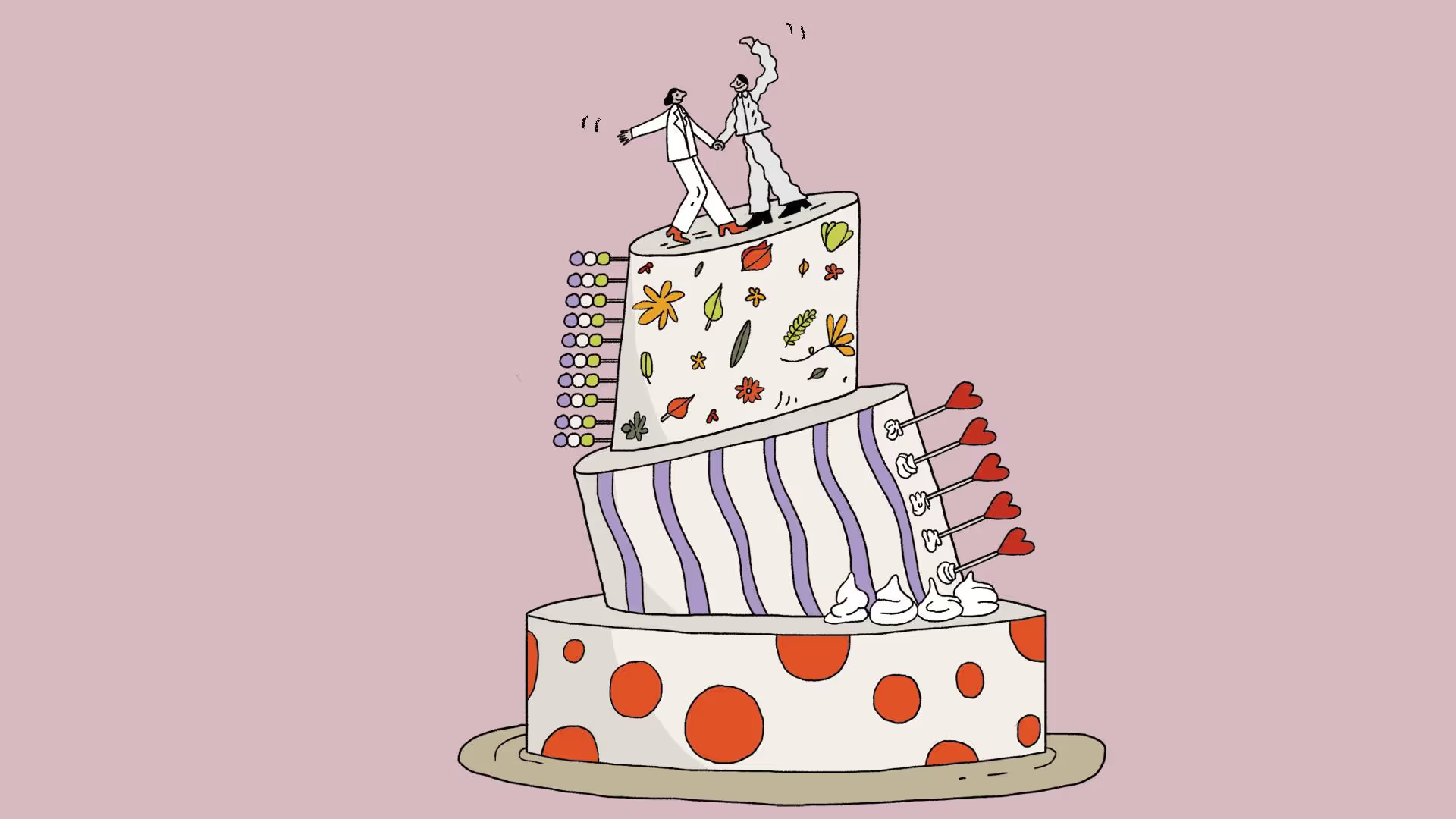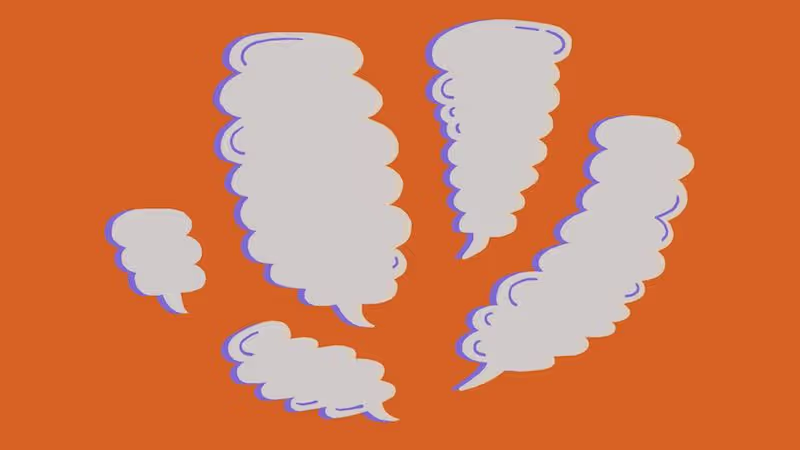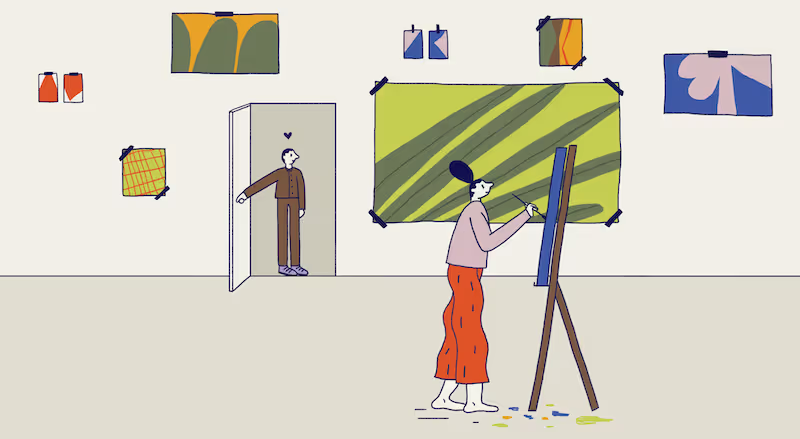Interested in going deeper on this topic? Join Esther for a free workshop on YouTube, May 11 at 3pm ET.
Shall We Begin?
It’s been estimated that there will be 2.5 million weddings this year, the most since 1984. As to why, there’s the obvious reasons—I know of couples who had to postpone their weddings up to three times due to Covid-19—and there’s the non-quantifiable factors. Crisis acts as an amplifier and an accelerator. If we were unsure of where our relationship might be going, disaster propels us to clarity. Many people have broken up during this era of prolonged uncertainty, but it seems even more people got engaged. And, when it comes to hard times, that may be a silver lining.
Spring is blooming all around us here in New York. Wedding bells are filling the air with a frequency we haven’t experienced since the “before times”. As invitations arrive, some for me and my husband and some for our sons—who are at that age when the number of weddings makes one wonder if buying a tux is a good investment—I’m feeling that familiar mix of excitement tinged with just a touch of dread.
As we enter a wedding boom, I find myself eager for ones that break the mold. I’ve been thinking about the wedding traditions I love most (toasts and dancing) and which traditions seem outdated, lack inclusivity, or have become increasingly unrealistic. Denying a plus one to a friend in a serious partnership because they are not married? Requiring the bridal party to block out multiple weeks and pay thousands of dollars to participate? Dress codes that don’t allow for a diversity of body types and gender expressions? These all feel like distractions from the reasons we have weddings in the first place.
Plenty of people commit to one another without ever getting married. Plenty of people get married without having a wedding. Our choice to have a wedding often has to do with what our families want for us, how we want to bring in our cultures and/or faiths, and for the simple fact that it is one of life’s greatest joys to bring so many people whom we love together for sake of witnessing a meaningful transition in our lives.
I love weddings. I have officiated three. I scan the couple and guests’ personal histories, ask them about their traditions, and help them articulate what they want from their wedding. And then I love to help them come up with new rituals. I focus my remarks around marriage as a contract, not just between partners but between the protagonists and their community. I facilitate a few practices to bring everyone into the circle: step forward if you have known one of the people getting married for less than a year, a decade, in their previous relationships… and continue the exercise going all the way back to birth. Knowing that weddings make us all think about our own relationship status, I ask: who here is in a relationship? Who would like to be in a relationship? Who is in one and would sometimes like to be out of it?” That one gets the laughs. These exercises have become the traditions I’ve built upon at every wedding.
Recently, I officiated a wedding between a Kikuyu Kenyan woman and a Jewish American man. We used a shuka, a large cloth worn by the Kikuyu people, into a chuppah, the canopy under which a couple marries in a Jewish wedding ceremony. We passed around the rings and I asked each guest to imbue them with an investment in this couple and in this community that has been gathered by their love. I instructed the couple to put the rings on each other halfway and then push them down the rest of the way on their own hands. I did this because of what it represents.
We get married to legally bind the declaration that we have chosen each other and that we have chosen to be loved by each other. We have weddings to contextualize those choices in our shared community. As for how we want to honor and celebrate those choices, we’re free to make it up.
Let’s Turn the Lens on You
- What are the joyful aspects of weddings?
- What are the dreadful parts of weddings?
- What traditions feel outdated or problematic?
- Do you experience weddings differently alone vs with a plus one?
- What comes to mind when you think of weddings that have inspired you?
- If you’ve had a wedding, is there anything you wish you would have done differently?
More From Esther
“When Are You Most Drawn to Your Partner?” / a recent article
Reconciling the domestic and the erotic is a delicate balancing act in long-term relationships. It requires knowing your partner while recognizing their persistent mystery. Read more on the one simple question that reminds us to appreciate our partner’s otherness and what the four most common responses tell us.
“Intimacy and Your 5 Senses” / an article
Eroticism is a counterforce to melancholy, and accessing it can be as simple as tuning into the senses we have available to us. When we invite Eroticism into our relationship, that container of intimacy expands around us, holding us together by a shared sense of wonder that both grounds and excites.
“5 Ways to Start Conversations with Confidence” / an article
Attending a wedding this year? Here’s a resource to help you brush up on your small talk skills. When done well, small talk can be a sweet, touching, and thrilling experience. It’s a bridge between your life and the lives of others.
Conversation Starters
A compendium of highly recommended sources of inspiration and information
I’m Reading:
- “Tough: My Journey to True Power,” a new book by Terry Crews
- "You Know, Sex: Gender, Puberty, and Other Things," a new book by Cory Silverberg
- “Why the Past 10 Years of American Life Have Been Uniquely Stupid” by Jonathan Haidt (The Atlantic)
- “What You’re Feeling Isn’t A Vibe Shift. It’s Permanent Change” by Elamin Abdelmahmoud (Buzzfeed News)
Resources for Ukraine:






.svg)





